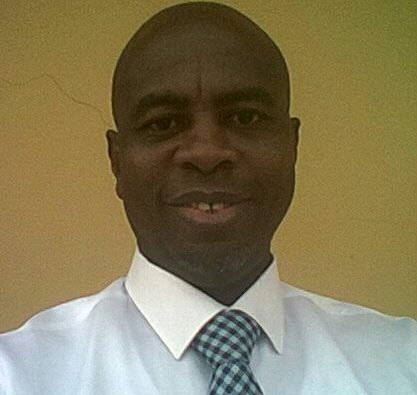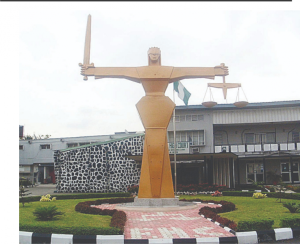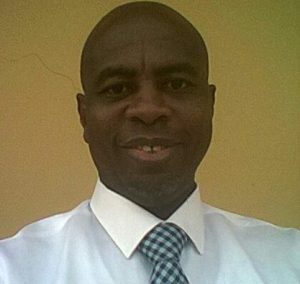
Nigeria is no doubt in the middle of an unprecedented throe of security challenges. In the last one to two decades, the country has witnessed a spate of violent ethnic agitations and religious extremism that snowballed into the breach of peace and insurgency in parts of the country. From incensed Niger-Delta militant agitations, through MASSOB and IPOB insurrections, to the Boko Haram insurgency, the nation’s economic and political landscapes have been extensively shaken like never before since the Civil War. The role of the Nigerian military and the other security agencies in keeping the peace, protecting lives and property, and keeping the country together cannot be downplayed in any sense. Nigeria is still a nation today very primarily because of the all-important role of our security agencies, but the demands on these agencies have multiplied in recent years. Tackling our current security challenges thus would require an overhauling of the security sector, hence the call for critical reforms.
At the centre of the quest for change and advancement would be such questions as: How well-fortified is the Nigerian military with respect to personnel vis-s-vis the nation’s demand for internal security? What is the strength of the Nigerian military in terms of equipment and weaponry? How technologically driven and up-to-date is the Nigerian military, and the security agencies in general? How much of interoperability exists within the entire Nigerian security network? How effectively have the security agencies secured the borders of Nigeria, and what are the perennial or persisting gaps? How well motivated are the officers and ratings of the various agencies? These questions and more arguably contain in them the touchstone against which Nigeria’s success could be weighed in light of her security sector.
To examine the Nigerian military, for example, all indices show that there are gaping lacunae in the personnel base of the services. This has to be assessed in direct relation to requirements in the theatres of war and various centres of intervention that continuously demand the presence of the army in various parts of the country. A feasible reformation programme for Nigeria’s security should produce a Nigerian military that is capable of reviewing, redefining and re-engaging its strategies in manners well-articulated and calculated towards an assiduous reinforcement of the number of footmen, fighters, shipmen, and enforcers. As earlier stated in our previous article, ‘How to Defeat Boko Haram,’ the Nigerian military needs ‘400,000 well trained active personnel’ to completely kill off Boko Haram, banditry, militancy, and effectively secure the nation. The benefits of numbers cannot be underestimated because only an adequate personnel capacity-enhancement of the forces can position the nation at full strategic advantage against all forms of insurgency and aggression filtering in through the borders. Regardless of the size of the enemy’s strength or strategy, the Nigerian security forces would have the precondition to capably engage criminals, guerrillas, and ISIS-backed insurgents.
Read Also: Insecurity: Why Tinted Glass Is Now a Big Issue
A critical approach to the personnel requirements of the Nigerian Army, particularly in a war situation as it is presently with Nigeria, is to consider the practical dimensions of quickly transforming specific units of the Police, the Nigeria Security and Civil Defence Corps, and other paramilitary organisations into fighting soldiers who could be used as armies of occupation in threatened or recovered territories. It is instructive, for example, that the Nigerian Army has had to fight and capture Baga in Borno State at three different times. On each occasion, they move in, kill some of the insurgents and push out the others, and then move on to other areas where they are needed. The insurgents always seem to know when there is a vacuum, and when to make a return. With the background of the paramilitary personnel, six to ten weeks of crash military training will suffice to permanently station them in various places that require steady military presence.
Arms and ammunition remain nothing to reckon with in the present scheme of things, leaving the military in the dilemma of a paradoxical fight-or-flight contraption. The issue of inadequate funding must be painstakingly addressed in order to strategically elevate the status of the Nigerian forces in terms of combat readiness. Security sector reforms should necessarily incorporate how Nigeria could enhance the military’s weaponry, especially state-of-the-art weaponry built for conventional and asymmetric warfare. The international dimensions of arms procurement have to be extensively reviewed with a view to pragmatically re-engage and re-aligned the nation’s interests with our foreign relations and businesses. The processes and dynamics of procurement have to become more transparent and accountable within broad military and regulatory ranges that make for best practices, checks and balances.
There is a lot more to be desired in terms of interoperability among the various services and agencies. The security agencies should evolve into an efficient network of highly coordinated operations in various theatres, rather than the inter-agency rivalries that sometimes negate coordinated security engagements. A structure that would enhance inter-agency cooperation, establish processes of interoperability on a case-by-case basis, and significantly penalise failures in required responses would close up many of the security gaps plaguing the nation.
A common tale of the military is that very often when they apprehend criminals and hand them over to the police to be prosecuted, they sooner or later get to apprehend other criminals who turn out to be the same persons that were earlier apprehended and handed over to the police. Without doubt, such indicates that there are huge problems within the system, and much of these have to do with the police, the lawyers, and the judiciary. Security sector reform should necessarily take along with it a reform of the judicial processes and system. As long as the police and the judiciary cannot deal with their ends of the bargain, for so long will the nation’s security problems persist.
The military has in the past and present shown examples of desirable cooperation in joint operations. But there are still lots of gaps waiting to be filled. Inter-agency cooperation should necessarily and effectively include the Police, the Department of State Security, the Customs, the Immigration Service, the Nigeria Security and Civil Defence Corps, and all other security and intelligence agencies. Cooperation, collaboration and complementarity should lead to reduced capital and operational costs, enhanced processes, and improved security outcomes in the country.
A redesigned reformation framework should define collective responsibility in a manner that places primary responsibility on individual leaders within the various services and agencies to fosters inter-agency synergy. An effectively institutionalised interoperability system would adequately manage inter-agency conflicts of statutorily delineated jurisdictions, and clashes of personalities at various levels of leadership. Curbing these and other inhibitors will enhance the contexts of working in tandem towards common security goals and objectives.
To further strengthen the nation’s security apparatus, provisions should be made for the installation of remote surveillance systems which maximise satellite technologies in monitoring and securing the country’s borders. This ensures that effective aerial and panoptic views of the nation’s borders are possible with more efficient physical protection of the borders. This way, a virtual wall, complemented with physical fortifications, should be erected to secure the nation’s territorial space. The ‘erection’ of a virtual wall around the entire country implies that the Customs and Immigration Service would have the much dependable information-technology and communication infrastructural base to track human traffic and activities across the borders. With the walls should come the establishment of a special unit of the military to protect the borders. Such frameworks would make it possible to monitor the entire borders of Nigeria, especially the crisis-torn areas. A technology-driven security architecture is the gateway to becoming masters of our national space.
Such technology arrangement should be well-tailored to purpose, but also futuristic. Richard Hundley and Eugene Gritton, for instance, have discussed promising military programmes such as the development of insect-size flying and crawling systems capable of a wide variety of battlefield sensor missions; the development of techniques from molecular biology and biotechnology to develop new molecular electronic materials, components, and computational architectures; the use of up-to-date microelectronic and information technologies as the basis for a new advanced-technology logistic system; the development of techniques and strategies to protect a country’s cyberspace, and the use of a variety of technologies to enhance the survivability, mobility, and mission performance of individual soldiers. Nigeria needs an Institute of Military Technology that would combined and coordinate the bits and pieces of critical efforts in various parts of the country, and elsewhere, into what should become an alternative global hub for the development of military softwares, hardwares, and critical technological innovations. Yes, we can!
The development of such advanced military technologies will most certainly reposition the nation as a regional power to a place where it exudes a fearsome and formidable character that commands the respect of other nation-states, and enemies. A grand strategy for Nigeria’s immediate and long term security, the strategic implementation and monitoring of a military development agenda, funding of the military, community policing etc., are all elements that should be significantly considered and incorporated into the security sector reformation that the country badly needs.
The onus is on the President and Commander-in-Chief, President Muhammadu Buhari, to effectively and adequately empower the machinery of government across board for a comprehensive reform of the nation’s security sector, and to ensure that this is done timeously. But there is also much responsibility on the service chiefs and other top brass of the security sector. These have worked with the President in the last five years in directing affairs within their jurisdictions. They have a thorough insider and near-omniscient understanding of the security sector issues in the country. It behoves on them to offer the nation as a joint legacy of their uncommon tenure the much desired security sector reform, and to redefine and raise the bar of performance in the sector.

Dr Udu Yakubu

